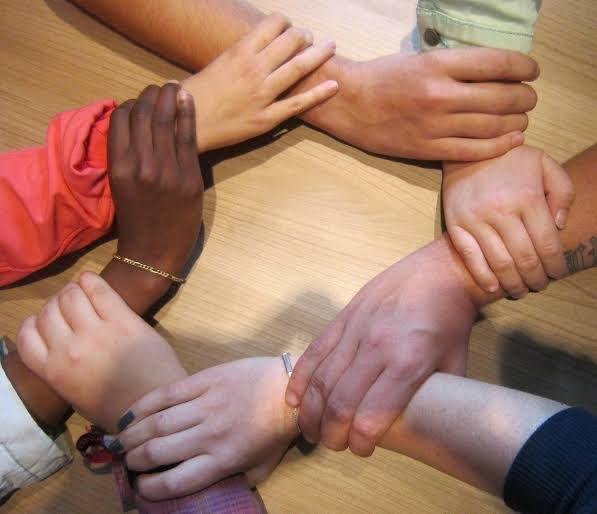International Human Solidarity Day, observed on December 20th each year, serves as a poignant reminder of the importance of unity and collaboration in addressing global challenges. Established by the United Nations, this day emphasizes the collective responsibility of individuals and nations to promote solidarity and work towards a more inclusive and equitable world.
The roots of International Human Solidarity Day trace back to the United Nations Millennium Declaration adopted in 2000. The declaration outlined a commitment to eradicate poverty, promote gender equality, and address various global issues collectively. Recognizing the need for international cooperation to achieve these goals, the UN General Assembly proclaimed December 20th as International Human Solidarity Day in 2005.
International Human Solidarity Day holds profound significance in fostering a sense of shared responsibility for addressing pressing global issues. It encourages nations and individuals to unite in a collective effort to tackle challenges such as poverty, climate change, inequality, and social injustice. The day serves as a call to action, emphasizing that by working together, we can create a more sustainable and compassionate world.
The essence of human solidarity lies in recognizing and celebrating the diversity that enriches our global community. It is a call to bridge gaps, build understanding, and promote empathy. In a world marked by cultural, social, and economic differences, fostering solidarity becomes a powerful force for positive change.
Addressing Global Challenges Of Human Solidarity
The day prompts reflection on the interconnected nature of global challenges. Issues like climate change, pandemics, and economic inequality transcend borders, emphasizing the need for collaborative solutions. By standing in solidarity, nations can pool resources, share knowledge, and implement joint initiatives to address these challenges more effectively.

Solidarity is especially crucial in times of humanitarian crises. The day highlights the importance of providing assistance and support to communities affected by natural disasters, conflicts, and other emergencies. It underscores the idea that no nation or individual should face adversity alone and that collective action can alleviate suffering and promote recovery.
International Human Solidarity Day also plays a vital role in raising awareness about global issues and inspiring collective action. Education and information-sharing are integral components of building solidarity. Through platforms like social media, events, and campaigns, the day encourages people to learn about and engage with challenges that impact humanity as a whole.
The day underscores the role of individuals as global citizens with a shared responsibility for the well-being of the planet and its inhabitants. It encourages people to embrace a sense of social responsibility and take actions, both big and small, that contribute to positive change. Whether advocating for environmental conservation, supporting humanitarian causes, or promoting inclusivity, individuals can make a meaningful impact.

As International Human Solidarity Day approaches in 2023, the world once again has an opportunity to reflect on the principles of unity, collaboration, and shared responsibility. In a rapidly changing and interconnected world, the importance of solidarity cannot be overstated. The day serves as a catalyst for meaningful action, inspiring individuals, communities, and nations to come together in the spirit of cooperation to build a better future for all. It is a reminder that our collective strength lies in our ability to stand in solidarity, overcome challenges, and create a world that values justice, equality, and the well-being of every individual.
As we commemorate International Human Solidarity Day in 2023, it is essential to recognize the evolving nature of global challenges. The ongoing COVID-19 pandemic has highlighted the interconnectedness of nations and the imperative for collaborative responses. Solidarity has played a crucial role in the collective efforts to combat the pandemic, from sharing medical resources to supporting vulnerable communities. The resilience demonstrated during these challenging times underscores the vital role of international cooperation in addressing not only current crises but also future uncertainties.
In the realm of climate change, another pressing global concern, International Human Solidarity Day encourages nations to forge alliances for sustainable development. The shared responsibility for environmental conservation and climate action underscores the need for collaborative strategies. By uniting in the pursuit of green technologies, renewable energy solutions, and sustainable practices, nations can collectively contribute to mitigating the impact of climate change and safeguarding the planet for future generations.
The principles embodied in International Human Solidarity Day extend beyond governmental actions to the everyday choices of individuals. In our interconnected world, small acts of kindness, understanding, and empathy reverberate globally. Whether it’s supporting fair trade practices, advocating for social justice, or promoting inclusivity, individuals contribute to the larger tapestry of human solidarity. The day serves as a reminder that collective efforts, both big and small, shape the narrative of our shared human experience.
Furthermore, International Human Solidarity Day stands as a testament to the power of unity in navigating the complexities of our contemporary world. As we navigate ongoing challenges and anticipate those on the horizon, the principles of solidarity remain an enduring beacon. By fostering a sense of shared responsibility, celebrating diversity, and embracing collaborative solutions, individuals, communities, and nations can collectively pave the way for a more resilient, compassionate, and sustainable global future.

